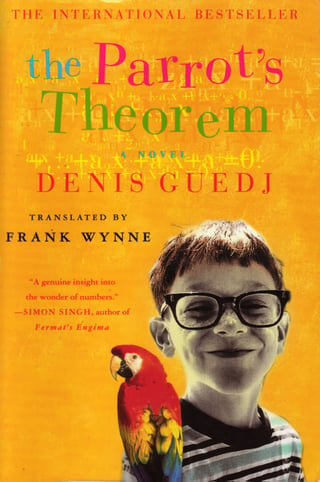John Banville is perhaps the best stylist I've ever read. His style is poetic, concise (few of his books are much over 200 pages), perhaps even mathematical. Many of his protagonists are mathematicians, but that might not make a great deal of difference to this community as mathematics is usually discussed only in passing. Banville has a lot to say about the creative experience and travails of being a mathematician, but if you're looking for, say, witty insights about topology, best look elsewhere.
Banville's work with the most to say about the general experience of being a mathematician is Mefisto. The protagonist is a mathematician, probably a chaos theorist. Mefisto never goes into the details of his work, but nearly every word is a reflection on the working style of a mathematician and the necessary conditions for great discoveries to occur. The book shares some themes with Aranofsky's movie Pi. Mefisto is loosely based on Faust.
Banville's fictionalized biographies of Copernicus and Kepler contain his greatest scientific detail. Personally, I slightly prefer Doctor Copernicus, though Kepler is also very good, particularly the passages about Kepler's battles with his patron Tycho Brahe over geo-heliocentrism. Doctor Copernicus contains some absolutely beautiful passages about the process of doing science, and the details of Copernicus' life, both real and fictionalized, are fascinating.
The protagonist of The Newton Letter is a historian studying Newton's nervous breakdown. Parallels between Newton's experiences and the historian's begin to emerge.
The protagonist of The Book of Evidence is a statistician turned murderer and art thief. Statistics isn't discussed much, though there are a few snappy lines about what qualities make a good mathematician. I haven't read Ghosts, but, apparently, Ghosts has the same characters as The Book of Evidence.
Banville's most recent book, The Infinities, is about a son's return to the deathbed of his father, a famous mathematical physicist. The book has little to say about math: more to say about celebrity, I think. Pretty much everything mentioned about math is deliberately counterfactual. For example, it's mentioned in passing that cold fusion is a reality, and that the father got famous for his general equations explaining why it works.
The two books I particularly recommend to scientists are Doctor Copernicus and Mefisto.

